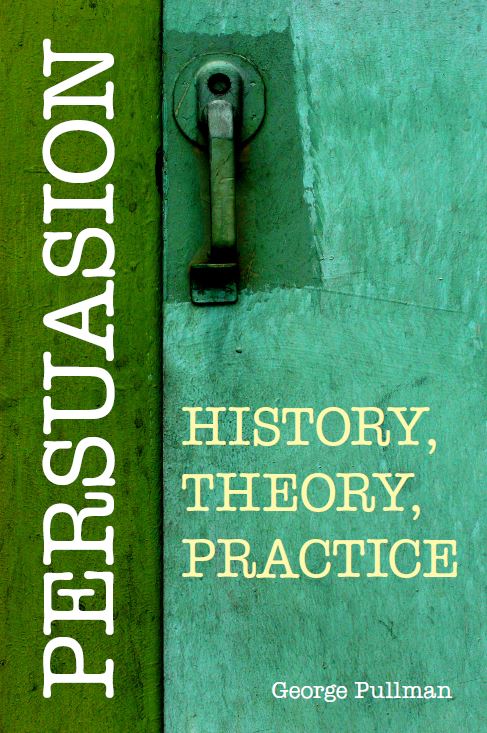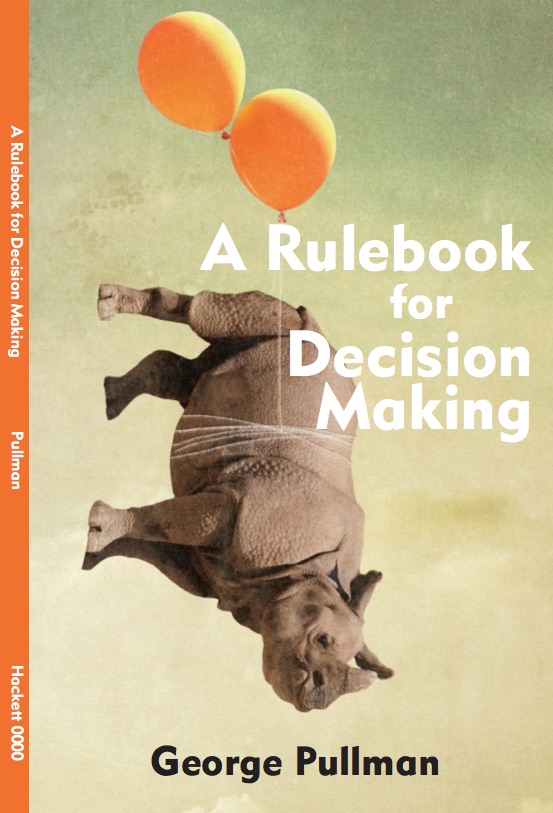Books

Persuasion: History, Theory, and Practice
is the publication of the notes I wrote for
English: 3080 History Theory and Practice of Argumentative Writing. I wrote these notes over the course of 3 years as I taught the class repeatedly. They were written and delivered online, in a class management system I wrote that consists of a place for students to publish their work, peer review the work of their classmates, get feedback from me, and get free access to classical rhetorical texts and current news feeds relevant to argumentative writing as well as my elaborate notes about the history and practice of rhetoric. At the end of the last time I taught the class I asked the students, as I always do, what they thought had worked and what about the class needed work and one said she wished the class notes were printed instead of only online, and another said, "Yeah, that should be a book." Literally a couple of weeks later, the then Senior Acquisitions Editor for Hackett stopped by my office. I showed her the website and much to my astonishment she said they might like to make something paper of it. Websites aren't books just because they are often hard to print. There was a considerable amount of translation, as it were, to get it ready for print, but a year later, it was in print.

A Rulebook for Decision Making
will appear March, 2015. I wrote it at the request of the publisher's CEO, Deborah Wilkes. This book discusses deliberation, one of Aristotle's three genres of rhetorical discourse. There are, however, no references to Aristotle. The book is a synthetic overview of research from psychology, game theory, and decision theory. It is a practical text designed to fit well in an class, regardless of discipline, where students are learning how to make decisions.
One reviewer wrote:
"Pullman offers his readers an essential set of insights into how humans reason and make decisions. Both concise and far-reaching, his work teaches us how to challenge intuitive logic AND examine the processes for deliberative reasoning. This text will prove foundational for students in their intellectual journey toward the development of real skills in critical thinking. By pointing to simple, yet profound examples, Pullman's text is both readable and provocative as it challenges us to consider the very mechanisms by which we understand our own cognitive biases." Bradley A. Hammer
University of North Carolina, Chapel Hill.

Writing Online: Rhetoric for the Digital Age
(Hackett, 2016) explains why every English major today, indeed anyone studying communications, design, or any field where getting a message into the world matters, needs to learn how to code for the web. To be digitally literate means to think differently, just as the people who Plato feared when he castigated writing all those years ago learned to think differently from those trained solely in an oral culture, so the digitally literate think differently from their paper-based friends and colleagues. The digitally literate understand the recursive nature of writing, how to write something only once and use it and only it, rather than various versions of it that might cause legal trouble or confusion otherwise. They can think computationally, algorithmically. And they know how to write parsimoniously. They know when to use text and when to use images. It's not that a professional writer will have to also write code for a living, just that if he or she knows how code is written, he or she will better understand the rhetorical digital situation. He or she will also be able to create a more compelling portfolio, one that displays a highly marketable range of skills. And, oh, yeah, you'll become an expert proof-reader because if you're code syntax is broken even just a little, it won't work. Would that regular English sentences were compiled or run.


